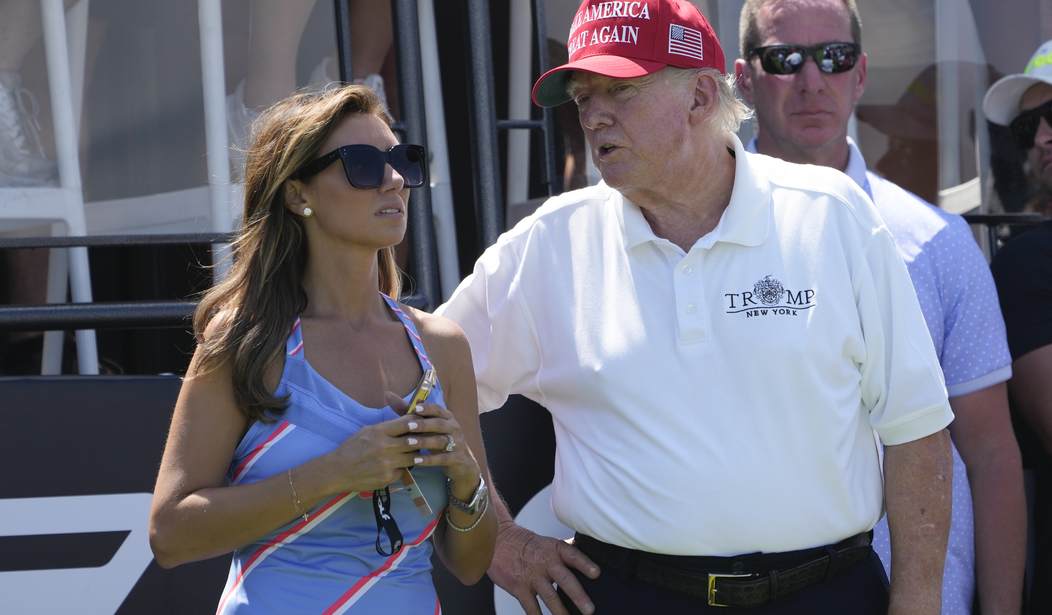A day after a jury awarded E. Jean Carroll $83.3 million in damages for alleged defamation by Donald Trump, New York Post columnist Charles Gasparino learned from a source that the judge in the case, Judge Lewis A. Kaplan, was once the mentor of Carroll’s lawyer, Roberta Kaplan (no relation).
“It was never disclosed. It’s insane and so incestuous,” Trump lawyer Alina Habba told the Post.
According to Casparino’s source, during her early years at the Paul, Weiss Rifkin, Wharton & Garrison law firm in Midtown, Roberta Kaplan worked as an associate at the firm at the same time Judge Kaplan was, before he was appointed to the federal bench in 1994 by then-President Bill Clinton.
“This is news to us,” she continued. “We are going to include this in our appeal and take appropriate measures. The fact it wasn’t disclosed is an ethics violation.”
A spokesperson for Roberta Kaplan denied any conflict of interest. “They overlapped for less than two years in the early 1990s at a large law firm when he was a senior partner and she was a junior associate and she never worked for him,” they claimed.
But that characterization was disputed by an unnamed former partner at the firm, who says that Kaplan was like any other associate at the firm and did her best to distinguish herself before the partners, including now Judge Lewis Kaplan.
“Lew was like her mentor,” the former partner claimed.
In response to the story, Habba sought clarification from Judge Kaplan about the alleged conflict of interest.
“If Your Honor truly worked with Ms. Kaplan in any capacity — especially if there was a mentor/mentee relationship — that fact should have been disclosed before any case involving these parties was permitted to proceed forward,” Habba wrote in a letter to the judge. "This issue is particularly concerning since Plaintiff’s other lead counsel, Shawn Crowley, served as Your Honor’s law clerk, and we were previously advised that Your Honor co-officiated her wedding. 28 U.S.C. Section 455(a) states that “[a]ny… judge … of the United States shall disqualify himself in any proceeding in which his impartiality might reasonably be questioned.”
Related: Did E. Jean Carroll Admit Her Real Motivations for Her Accusations Against Trump?
Roberta Kaplan responded to the letter with her own to the judge.
"As Ms. Habba well knows, these allegations are utterly baseless,” she claimed.
"During that relatively brief period more than thirty years ago, I do remember the Paul, Weiss partners with whom I worked and none of them was Your Honor,” she continued. "More specifically, I have no recollection from that time period of ever interacting with Your Honor on a case, participating with Your Honor in a client or case-related meeting, or attending a court proceeding with Your Honor. In fact, I remember no direct interaction from that time period with Your Honor at all."
It’s a rather weak response, if you ask me, as Kaplan’s confident declarations of having no contact with the judge during his time at the firm are undermined by her repeating multiple times that her story is based on her recollection — which could be wrong. It is particularly amusing, considering she even claimed the former partner who spoke to the Post for the story "clearly has a very flawed memory about events that occurred three decades ago."
Kaplan concluded the letter by saying that she may "seek sanctions” against Habba.
Astonishingly, Habba quickly backtracked and now considers the matter settled.
Update
— Adam Klasfeld (@KlasfeldReports) January 30, 2024
Trump's lawyer Alina Habba says, in short, that she was just asking questions about the New York Post article.
After Carroll's lawyer rejected it—and threatened to seek sanctions—Habba says the matter seems "resolved."
Background, @TheMessenger https://t.co/GnAJ79DAWp pic.twitter.com/ti9lgG5SJl
Why would Habba fold so quickly? Post columnist Charles Gasparino appears to be standing by the story on social media, and all Habba was doing was asking for the judge, not Carroll’s lawyer, to respond. Personally, I find it interesting that Roberta Kaplan chose to preempt a response from the judge with her own version of the story, complete with a threat against Habba — which clearly worked. The claims made in the New York Post were quite serious, and Habba was absolutely right to ask the judge if the details in the story were true. On top of that, if there was no conflict at all, why wasn’t the overlap in Roberta Kaplan’s and Lewis Kaplan’s time at the same firm originally disclosed at the beginning of the case to preempt any questions about the conflict?
Something doesn’t seem right about this.










